ABRAHAM LINCOLN
Lord Charnwood
Introduction by
Peter W. Schramm

Introduction by Peter W. Schramm copyright 1996 by Madison Books
All rights reserved.
No part of this book may be reproduced in any form or by any electronic or mechanical means, including information storage and retrieval systems, without written permission from the publisher, except by a reviewer who may quote passages in a review.
Published by Madison Books
4501 Forbes Blvd., Suite 200
Lanham, MD 20706
3 Henrietta Street
London WC2E 8LU, England
New edition by Madison Books, 1996
Library of Congress Cataloging-in-Publication Data
Charnwood, Godfrey Rathbone Benson, Baron, 18641945
Abraham Lincoln/Lord Charnwood.
p. cm.
Originally published: 1st American ed. New York: H. Holt & Co., 1916.
Includes bibliographical references and index.
1. Lincoln, Abraham, 18091865. 2. PresidentsUnited StatesBiography. I. Title.
E457.C475 1996 973.7'092dc20 [B] 96-19040 CIP
ISBN 13: 978-1-56833-067-9
Distributed by National Book Network
 The paper used in this publication meets the minimum requirements of American National Standard for Information SciencesPermanence of Paper for Printed Library Materials, ANSI Z39.481984.
The paper used in this publication meets the minimum requirements of American National Standard for Information SciencesPermanence of Paper for Printed Library Materials, ANSI Z39.481984.
Manufactured in the United States of America.
CONTENTS
by Peter W. Schramm
ABRAHAM LINCOLN
INTRODUCTION
Americans are fond of discussing Americanism, writes Lord Charnwood. Very often they select as a pattern of it Abraham Lincoln, the man who kept the North together but has been pronounced to have been a Southerner in his inherited character. Whether he was so typical or not, it is the central fact of this biography that no man ever pondered more deeply, in his own way, or answered more firmly the question whether there was indeed an American nationality worth preserving.
I believe that Charnwood is right in his estimate of Abraham Lincoln. I also think that if you were to ask a typical American student today about Abraham Lincoln he would be more capable of telling you about the manner of his death than the purpose and significance of his life and statesmanship. This is not good. It shows a profound decline in understanding not only of an extraordinary man and the most interesting period in American history, but also of the meaning of America.
There have been more books written about Abraham Lincoln than any other historical figure, save Jesus Christ and Shakespeare. Why then is there no greater understanding or appreciation of Lincoln, of his speeches and actions, of the things for which he stood? Ironically, it is due in large measure to the way he has been treated by scholars and biographers. The historical record has been revised too many times to count. It has been argued that Lincoln brought on a needless war, in part to fulfill his huge ambition; that he was a self-made Caesar who falsified American history for his own self-aggrandizement. He was a destroyer of the Constitution. He was a pragmatist, lacking in all principle, without a deep moral commitment to anything. He was a deeply flawed man, uncertain of his purposes, fatalistic. He was a racist. And so on. He has been revised, analyzed, and psychoanalyzed to such an extent that it has become increasingly difficult even to glimpse the central fact that was so vividly clear to Charnwood, much less to understand Lincoln fully as he understood himself.
Of the four one-volume biographies of Lincoln published in this century, the one the reader is holding in his hands is the best. Perhaps this is because it is the first (originally published in 1916), and was not yet affected by the various ideological and revisionist movements that have blown through this century like malevolent southern storms. Perhaps it is because it is written by one who could say, of Lincolns time and his own, that popular government was then young, and it is still young. Perhaps it is because it is written by an Englishman, a foreigner who could not help looking at Lincoln as embodied America. Perhaps it is because Charnwood writes with clarity and grace, and tells a good story, virtues that have become increasingly rare in recent decades. Perhaps it is because he comes closest to understanding what an uncommon man Lincoln was, how he had fearlessly thought for himself, and how fine his character was. In any event, Charnwoods purpose in this memoir is original and pure. He seeks simply to understand this astute, unselfish man, and why his lifes story, after 1854, became one with the life story of the American people.
In recounting the main features of Lincolns youth and apprenticeship Charnwood notes that the surroundings the young man found himself in did not include men who were well versed in public affairs or men of approved intellectual distinction. Indeed, growing up in the West meant befriending necessity and simplicity. His surroundings consisted of crude people with a narrow horizon. But Lincolns character was such that this was not a limitation upon him. His mind was too original to be subdued to its surroundings, and he found much to stimulate his curiosity. There were plenty of men with shrewd wits and robust character to be met with, and the mental atmosphere which surrounded him was one of keen interest in life.
Everyone who got to know him discovered him to be awkward and uncouth, but genial, with a great sense of humor. The more they got to know him, the more they realized that Lincoln was also worthy of entire trust, and that he was a man of deep and gentle nature. Perhaps the first thing they noted about his character and countenance was that he seemed mournful. His friend Joshua Speed said late in life that upon meeting him, I looked up at him, and I thought then, as I think now, that I never saw so gloomy and melancholy a face in my life. It has been noted with interest how a man with such a sad countenance could be almost a professional humorist. Charnwood understands that this is related to Lincolns larger character, with its massive virtues and capacities. His humor was genuine comedy, deep, rich, and unsoured. It was like the comedy of Shakespeare, plainly if unaccountably akin with the graver and grander strain of thought and feeling that inspired the greatest of his speeches. So humorous a man was also unlikely to be too conceited to say his prayers. His gregarious habits, his storytelling, alternated with a habit of solitude. But even when he was with other people, chatting, arguing, and exchanging anecdotes far into the night, there was an element of purposeful study in it all. He was building his knowledge of ordinary human nature, his insight into popular feeling. He studied these samples of human nature even as he amused them. This, and the few books he read, were part of one study.
Charnwood thinks that the most marked and greatest of his powers was his rare capacity for solitary thought. He was capable of great concentration. When he wished to read, he read intently in the midst of a crowd or noise, or walking along the street. More often than not, he would read aloud. We all know that he had no formal education to speak of, but what we have lost sight of is that he was a great reader; and what he read he studied intensely with the depth and rigor of a well-honed philosophical mind. Charnwood points out that he saturated his mind with the Bible and Shakespeare. We know he mastered the first six books of Euclid. The effects of such discipline on his mind and character are seen to be important by this biographer. They allowed him to reduce subjects to their simplest and plainest terms, understandable to himself and others. The plain facts and their plain consequences were not only clear to him in calm hours of thought, but remained present to him, felt and instinctive, through seasons of confusion, passion, and dismay. His mind was as he himself appeared to be: patient, restrained, capable of waiting. Charnwood thinks this was because Lincoln had a fatalistic confidence in the ultimate victory of reason. He shows how Lincolns great capacity went hand in hand with the desire to reduce his thoughts to a form which would carry logical conviction to others. This is not unrelated to his great respect for the ability of human beings to understand and, ultimately, to act according to that understanding. This melancholic man was in the end the great optimist.


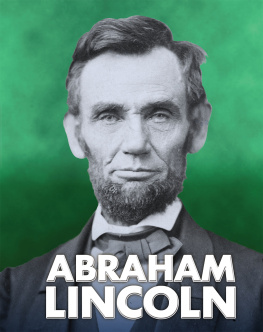
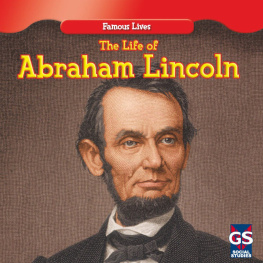


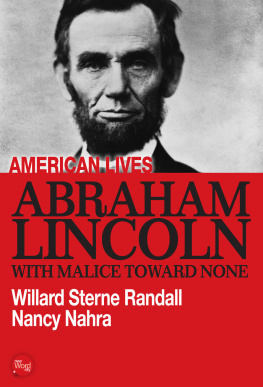


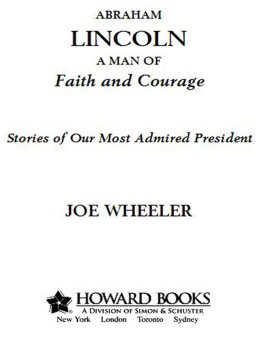
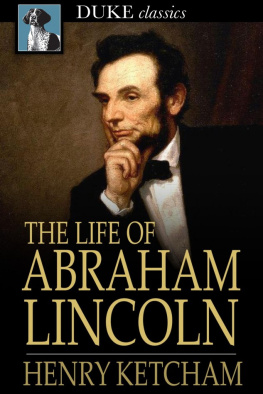

 The paper used in this publication meets the minimum requirements of American National Standard for Information SciencesPermanence of Paper for Printed Library Materials, ANSI Z39.481984.
The paper used in this publication meets the minimum requirements of American National Standard for Information SciencesPermanence of Paper for Printed Library Materials, ANSI Z39.481984.